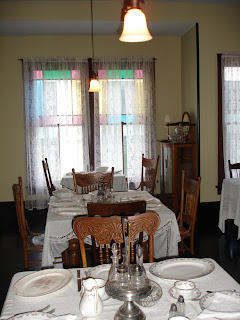The short version: I really, really enjoyed it. I started it almost as soon as it arrived Tuesday a week ago and finished it about 48 hours later.
The long version: To Kill a Mockingbird
Scout's heart is still the same, but when she returns home for a long visit to Maycomb, Alabama, from New York City, she's aghast that it's not the same place she remembers from growing up there (Thomas Wolfe, anyone?). That's something I can relate to. After almost three decades in one county in North Carolina, I relocated to suburban Atlanta. My visits back were often at first, but since the first couple of years, the time between visits has increased. Now I go back once or twice a year. Something amazes me each time. Downtown Raleigh has become a place with great restaurants and other places to go after work and on the weekends instead of the ghost town it was after 5:00 15 years ago. The nearby town where I went to elementary, middle and high school has changed dramatically. Young families actually move there from Raleigh because it's a great place that's tripled in population size since I was in high school. I could go on.
What some readers and critics have focused on is the difference we see in Atticus, who is, in GSW an elderly man who has passed the torch on to another, younger lawyer but still shows up to his law firm most days. He's still a pillar in the community. Just as Scout sneaked up to the courthouse balcony to watch her father defend Tom Robinson, she finds her same spot one afternoon to see where all the men in town have gone. As it turns out, it's a meeting that has a pro-segregation bent to it.
Don't many of us have an idealized notion of who are parents are and what they stand for when we're kids? At some point, for most of us, that changes. Suddenly, we find out that our parents are real people. And most of the time, real people are complicated. Discovering who are parents actually are as people is a big part of what it means to grow up.
Seeing Scout as a grown up is my favorite thing about GSW.




 We found a monument to O. Henry’s story, “Gift of the Magi” set in bronze in a sidewalk on a street in downtown
We found a monument to O. Henry’s story, “Gift of the Magi” set in bronze in a sidewalk on a street in downtown 









